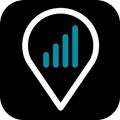Giga.telは最高のコストパフォーマンスを誇るブラジル向けのeSIMを提供しており、迅速なライブサポートと業界で最もシンプルかつ柔軟な返金ポリシーを備えています。さらに、世界約200カ国向けのお得なプランも提供しています。

Giga.telは最高のコストパフォーマンスを誇るブラジル向けのeSIMを提供しており、迅速なライブサポートと業界で最もシンプルかつ柔軟な返金ポリシーを備えています。さらに、世界約200カ国向けのお得なプランも提供しています。
インド向けGiga.Tel eSIMデータプラン
よくある質問
Giga.Telはインド向けに無制限データeSIMを提供していますか?
Giga.Telではインド国内で利用できるeSIMプランに「Unlimited」という名前が付くものがありますが、実際にはデータ容量に上限が設けられているため、真の意味での無制限データプランは提供されていません。たとえば、Daily Unlimited 1GB/Dayのプランは最大で1GBのデータ使用を許可し、それを超えると速度が512kbpsに制限されます。
代わりに、利用者のニーズに合わせた定量データプランが用意されています。例えば、7日間有効で50GBのプランは価格が56.99 USDです。データ使用量に上限はあるものの、制限後の速度が128kbpsになるため、大量のデータ通信を行わない限り、コストパフォーマンスが高い選択肢となります。さらに、1GB/DayのUnlimited名称付きプランでは、5日間や10日間有効のものがあり、Tetheringが許可されているケースもあります。ただし、いずれもデータ容量に上限がある点を留意してください。
Giga.Telはインド向けに電話番号やSMS付きeSIMプランを提供していますか?
Giga.Telはインド向けに電話番号やSMS機能付きのeSIMプランを提供していません。
提供されているのはすべてデータ通信専用のeSIMプランのみです。LINEやFacebook Messenger、iMessageといったVoIPアプリはデータ通信で動作するため、電話番号やSMS機能がなくても通話やメッセージを利用できます。
Giga.Telはインド向けにいくつのデータプランを提供していますか?
Giga.Telは国別プランを持たず、複数国プランが60件提供されています。これらは日別データ上限付きプランが21件、定量データプランが39件で構成され、価格は$5.99から $195.99、データ容量は1GBから50GB、有効期間は1日から30日です。
Summarized by Gen AI. Last updated:




